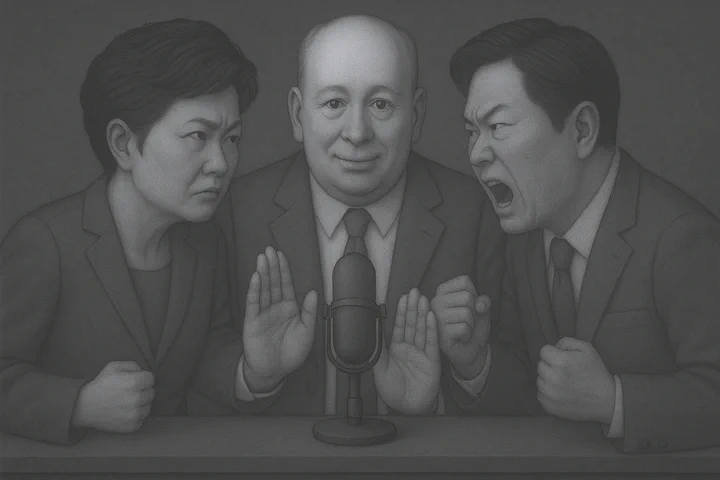Foreign policy and South Korea’s presidential elections

Significance. South Korea’s presidential election domestic debate focused on candidate personalities, recent political events, and party politics, amid a strategic landscape reshaped by Donald Trump’s presidency and growing demands regarding tariffs, United States Forces Korea (USFK), and U.S.-China rivalry.
It is tempting to imagine that the choice of a progressive or conservative leader would alter South Korea’s foreign policy, and the state’s interaction with the Trump Administration. This is not the case. South Korea’s foreign policy trajectory will be decided by external forces with the determining factor being South Korea’s need to steer a more independent course.
The result of the election is secondary to the deeper shift already underway: the U.S. is no longer a stable partner. Trump’s transactional diplomacy, unpredictability, and disregard for alliance norms will force the new South Korean administration to urgently recalibrate its foreign relations. The new president, regardless of identity, will inherit a constrained position—required to engage immediately with Washington, while preparing the nation to operate with greater autonomy. Over the medium term, the trajectory will be toward strategic diversification and cautious decoupling.
Analysis. South Korea’s foreign policy has long depended on its alliance with the United States. The U.S. has provided security guarantees, strategic cover, and economic cooperation since the Korean War.
Donald Trump’s first term as president between 2017 and 2021 exposed the fragility of this arrangement. His administration repeatedly questioned U.S. troop deployments, demanded exorbitant defense cost-sharing increases, and undermined multilateral coordination. These behaviors were not aberrations—they reflected a broader U.S. turn toward transactionalism and unilateralism.
Under Biden, the pressure continued, not as blatant monetary demands, but rather as deeply transformative strategic demands, altering South Korea’s position vis-a-vis China. These demands, although less brash and public, were just as significant.
Trump’s re-election in 2024 brought the blatant monetary demands and the transformative strategic demands together. In this context, today’s South Korean election is not about choosing a visionary foreign policy agenda, but about selecting a candidate who can rapidly respond to volatile alliance dynamics.
In the immediate period, the new South Korean administration will prioritize stabilizing relations with the Trump White House. This will involve navigating unpredictable demands on tariffs, defense spending, burden sharing, and alliance roles—especially around U.S. strategic flexibility and regional contingencies involving Taiwan.
As previously noted, South Korea will be viewed as an easy target for the Trump Administration. As pressure mounts on the Trump Administration and it becomes increasingly clear that the tariffs policy was flawed, Trump will see South Korea as an easily manipulated, media-ready demonstration that the tariff policy secured results. Both a conservative and progressive South Korean president would fall into place in Trump’s social media presidency. It is unavoidable.
Over the medium term, however, strategic logic points to a pivot. South Korea will intensify efforts to reduce overdependence on the U.S. through enhanced ties with global partners, deeper ASEAN cooperation, and more autonomous defense initiatives. This will not be a clean break, but a methodical shift driven by necessity rather than ideology.
Mainstream media reporting over the past week has focused on candidate personalities, voter turnout, and domestic policy promises. Foreign policy coverage has been reactive and episodic—centered on whether the new president is “pro-U.S.” or “pro-China.” This binary framing misses the deeper structural dynamics.
What is underreported is the extent to which Trump’s return to power has locked South Korea into an immediate reactive stance and long-term trajectory. There has been little mainstream recognition that the real driver of future policy is not the Korean presidency, but the constraints imposed by Washington’s erratic approach and growing rivalry with China. The media focus on local electoral drama obscures the geopolitical repositioning already underway.
Foreign policy under the new administration will be defined not by ambition, but by constraint management. Diplomats will be tasked with limiting damage from alliance turbulence, while opening space for diversified engagement. Relations with Japan, China, ASEAN, and the EU will gain prominence, not because of any ideological turn, but due to the erosion of alliance reliability.
South Korea’s foreign ministry will require agility to maintain U.S. ties without appearing subservient or reckless. Expect quiet efforts to institutionalize new multilateral dialogues, enhance economic diplomacy, and reduce military dependency. These are not revolutionary shifts, but adaptive responses to a more unstable great power environment.
Impact. Over the immediate period, South Korea will prioritize alliance crisis management with Washington; over the medium term, it will accelerate steps toward greater foreign policy independence in response to enduring U.S. unpredictability.
